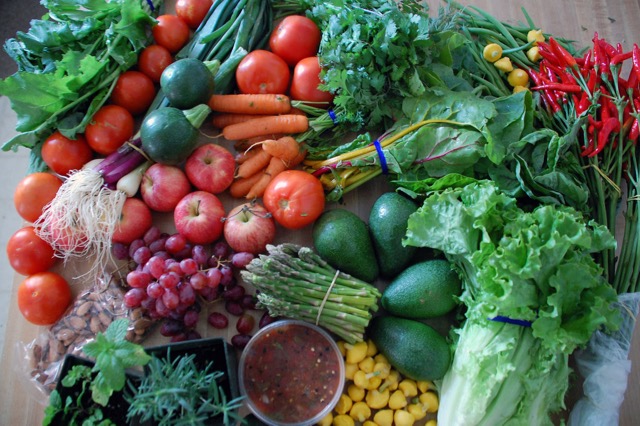New UMass Report Explores How Local Food Systems Responded To Meet Local Needs During COVID-19 Pandemic

Photo: flckr.com
Source: UMass News and Media
In an attempt to answer questions about how well local food systems were serving communities amidst pandemic conditions—and how they could do so with locally grown products—a new report by researchers at UMass Amherst examines the changes in household food provisioning during the first year of the COVID-19 pandemic in the Bay State.
In the spring of 2020, while food-insecure households were highly impacted by food provisioning challenges, households across demographics had to restructure their food provisioning habits and adapt to new ways of acquiring, cooking and consuming food during the pandemic. Report co-authors Kristen Whitmore, a doctoral candidate in regional planning studying local food systems, and undergraduate student Rafaella Fabrizi approached South Deerfield-based Community Involved in Sustaining Agriculture (CISA) to develop research questions that would help address these concerns for food producers, processors, distributors, and retailers, as well as policymakers, organizers, and community members across the Commonwealth.
Between July-October 2020, Whitmore and Fabrizi collected data from 27 individuals living in Massachusetts using participant observation, semi-structured interviews, and photo food journals. Among some of their findings, they discovered:
- Middle and high-income participants experienced ample opportunities for food provisioning from a constellation of sources, despite shortcomings of the conventional food system; meanwhile, participants with limited financial resources faced restricted access to healthy foods and experienced pervasive feelings of stress and anxiety as a result.
- Farm stores served as a safe food access point for many, including low-income people using SNAP, especially early in the pandemic.
- Local food home-delivery services developed rapidly and created new local food access points, especially for SNAP beneficiaries, disabled people and high-risk people.
- Participants ate more locally-produced food during the pandemic and their food experiences were often positive.
- Participants who could afford local food ate more local food – but only when it was safe and convenient to procure.
- Rapid and innovative cross-sector collaboration among food producers, municipalities, community-based organizations and local food retailers met emergency food needs quickly, with a focus on providing access to fresh produce.
- Community-based programs expanded food access, promoted food sovereignty and fostered community leadership during the pandemic.
“From this understanding we may evaluate and identify changes to policies, systems, andthe environment that may help us evolve in a just transition toward another world where all people have enough fresh food, the opportunity to honor and connect to their food source, and the power to own and shape their own food system,” the researchers write.
“Participants talked about the joy and security they experienced by participating in the local food system, which is a unique and critical part of building a resilient local food system,” Whitmore adds.
“The collaboration was truly inspired,” says co-author Krista Harper, professor of anthropology and public policy at UMass Amherst and faculty advisor of the report. “Kristen shaped the project with her depth of knowledge about local food systems research, and Rafi developed a focus on student food insecurity that contributed an original new perspective. We learned that the local food system showed great resilience during the pandemic, with new ways of delivering food and new kinds of food sharing and mutual aid efforts in the Pioneer Valley of Western Massachusetts, and yet for many consumers, food insecurity and lack of access to high-quality local food were sources of stress during the pandemic.”
“It was a wonderful experience to advise students in a truly collaborative research project that served a statewide organization’s needs,” Harper said .
The report, “Experiences of Local Food Provisioning during the COVID-19 Pandemic: Understanding Resilience in the Local Food System,” is available online from Harper’s UMass Amherst ScholarWorks page.
